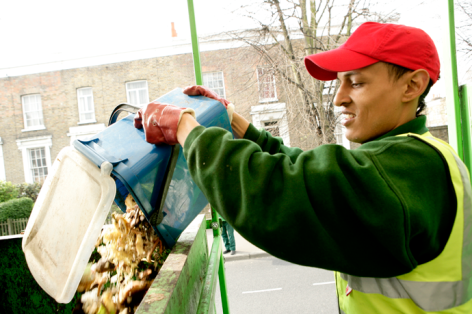 Eunomia’s Dominic Hogg says that it might be time to reappraise our thinking when it comes to the circular economy, and asks if we really have a basis for it when people are still “chucking stuff away”.
Eunomia’s Dominic Hogg says that it might be time to reappraise our thinking when it comes to the circular economy, and asks if we really have a basis for it when people are still “chucking stuff away”.
CIWM Journal Online Exclusive
The interest which the most recent incarnation of the circular economy (CE) has generated provides an opportunity to reappraise our thinking. There are two important areas of policy which I have long felt needed addressing, and I’ve challenged the concepts against the principles of the CE. The logic of the CE seems to strengthen the case for change rather than weakening it.
 The first relates to the absence of household charging for residual waste. I asked myself the question, “can we really build a CE when (at the margin) it costs consumers nothing to throw stuff away?” I don’t think so. If it’s easy to throw stuff away, it will get thrown away. We’ll be able to bend the economy but we’ll be struggling to make circles. Even in areas with decent quality food waste collection services for households, we capture of the order 50% of it. Wouldn’t it at least help to have a system in place in which waste management was paid for, in part, by direct charging for the quantity of residual waste that is discarded? This would lead to a reduction in the overall bill for household waste management in the UK.
The first relates to the absence of household charging for residual waste. I asked myself the question, “can we really build a CE when (at the margin) it costs consumers nothing to throw stuff away?” I don’t think so. If it’s easy to throw stuff away, it will get thrown away. We’ll be able to bend the economy but we’ll be struggling to make circles. Even in areas with decent quality food waste collection services for households, we capture of the order 50% of it. Wouldn’t it at least help to have a system in place in which waste management was paid for, in part, by direct charging for the quantity of residual waste that is discarded? This would lead to a reduction in the overall bill for household waste management in the UK.
Is Producer Responsibility Aligned With The Circular Economy?
The second relates to producer responsibility. Two questions here: “is producer responsibility, in principle, aligned with the delivery of a CE?”, and “assuming business is interested in developing a CE, what might producer responsibility look like?” The first comes out with a “yes”: the concept actually fits well with producers taking responsibility for products and materials all the way around the circles (less and less “end-of-life” here). The current design, though, seems at odds with what an industry looking to move to greater circularity would want.
There are at least three things which come to mind here: the first is that we’ve definitely focused too much on recycling and not enough on reuse, repair, and remanufacture – revamped schemes would target these areas, presumably with support from industry itself. The second is that I don’t understand the UK fetish for competition in areas where it will not deliver the best outcome. A well organised single scheme, operated in the interests of the obligated organisations, provides the opportunity for more efficient logistics, and raises the serious prospect of developing UK-based infrastructure on a platform of greater certainty than one where the market is fragmented.
The third is that producers should fund the full extent of the management of their products at end of life. After all, isn’t that what the CE envisages that businesses will want to do? The scheme should also have responsibility for marketing the collected products and materials. Recycling doesn’t retain the value added inherent in whole products, or parts of products, and to the extent that greater circularity makes business sense, it follows that businesses would have an interest in ensuring the way collection is undertaken maximises the prospects for value retention.
Are We Really Serious?
This, to me, is a test-bed for how serious industry really is about developing a CE: if industry wants to get products and materials back, and potentially, in quite specific forms, then the necessary infrastructure to do so has to be funded. Industry has to design those systems to support its business objectives. The brief discussion also highlights how strong the link with conventional waste management will remain as long as businesses don’t take this on since they will be riding on the back of services provided by local authorities, just as they are today. And then we’re back to my first question: if people can chuck stuff away for free, do you really think we have the basis for a CE?
Dominic Hogg is an ambassador for RWM in Partnership with CIWM.

